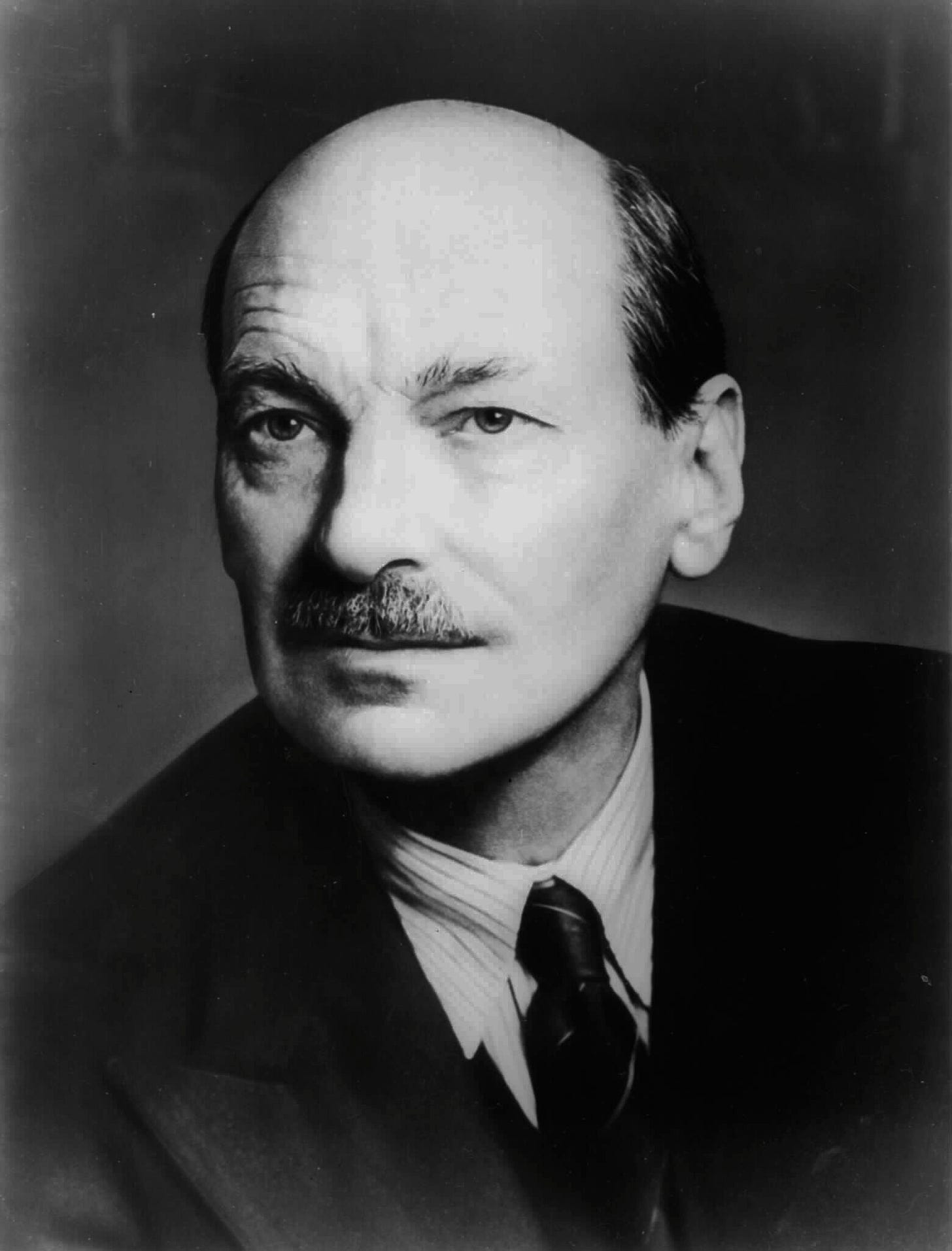Starmer and the Spirit of '45
Attlee's historic achievements are often invoked as a way to attack a percieved lack of ambition from Starmer. But the truth is the two have a fair bit in common.
This is the fortnightly free version of my newsletter. To have access to my musing every week, please sign up!
NEWS! I have spent this weekend taking part in a brilliantly bonkers project this wekend. A group[ of utterly fabulous people (and me) have created a whole play in just 48 hours! And you can come and see it tonight or tomorrow. Click on the image below to buy tickets. However, I should apologise as this means this newsletter is slightly shorter than you might otherwise expect.
Nostalgia is a powerful - and very partial - drug.
We remember what we want to remember - and forget the rest. The hardest decisions are made to seem easy by turning out to be the right ones. Our politicians become giants because we remember the result of their calls - not the missteps they made along the way.
This is even more true for the parts of the part we are nostalgic for but don’t actually remember. That came before us and shaped our lives, but that we do not ourselves, actually, remember.
The left says this often about those who co-opt the war generation into their nostalgia-driven narratives of how Britain can be great again. Churchill becomes only the man who won the war - and any questioning of other parts of his legacy becomes unpatriotic in this narrative.
But we are not immune to this ourselves. But it is not the war we look back to, but what came afterwards. What was achieved by the Attlee government in the establishment of the NHS.
My thoughts on Attlee are triggered mostly by seeing Francis Beckett’s excellent play A Modest Little Man and the recent episode of the These Times podcast. What surprised me was not how different those times were, but how similar a lot of the challenges Labour faced then are to those they face now, and equally how much of the criticism of Starmer can be answered with a look at Attlee.
Of course, Labour is not going to launch a new NHS - though they will have to, once again, fix the damage the Tories have wrought on it.
But I think that Starmer has spent some time as we start the summer setting up Labour against the argument that is being too modest in its ambitions.
For me, let’s face it, anyone who makes the competition about building more - not fewer - houses is going to be a winner in my book. But what Labour’s position over building - including on the Green Belt - isn’t is timid.
Add that to the area where spending plans are most developed - achieving 100% clean power and energy security through GB Energy.
Then there is the National Care Service, which is under discussion and is the missing piece that will vastly help with the rebuilding the NHS needs in an ageing society where few adults in need of care are finding their needs met.
And a national plan for a reformed and full system of free childcare hours will help many people - and particularly women - back to work.
What strikes me about these proposals, is that they work individually as retail offers for different groups. Workers who want the high-skilled jobs that a new energy system will bring; Women who want a choice about whether to return to work; Young people looking to either get on the housing ladder or secure a better kind of tenancy; older people and disabled people who rely on care, but currently are insecure and subjected to indignities.
But what they do as a whole, is help Labour tell a whole new story about productivity. For too long, that word has been the remit of the ‘time and motion’ studies people, trying to squeeze the last drop of joy or autonomy from the workplace. It’s been the job of corporations to bring growth - no matter what the social cost.
For me, these proposals make the building blocks of a story Labour could be - but is not yet - telling about the shape of a Labour nation. The feel of it. It speaks to an undercurrent of productive buzz as we become a place whose workforce can be invested in because they are believed in.
I can’t remember where, but I read once of the Beatles that Paul was nostalgic for the past, John for the future.
I don’t think that’s particularly fair on McCartney (who is my preferred Beatle of the two - up to and including the Frog Chorus which is a work of genius and I will bop on the nose anyone who disagrees). But I think that, ironically, much of the embrace of Lennon from today’s left is about projecting an imagined (geddit) vision of the future onto him - a future he never got to live and disappoint us in. Meanwhile, Paul mostly just got on with being a nice bloke. Doing the work, enjoying his time and getting the job done.
Clem Attlee was not a man of great charisma. But he was a man of quiet patriotism and service. He was - essentially - the home PM while Churchill managed the war effort.
I see parallels here with Starmer. He is also never going to set the world alight with his charisma. But his years of service as a human rights lawyer and Director of Public Prosecutions tell a story of stoic - and even patriotic - duty. He is reassuring even as the policy platform is more radical than Labour wants to shout about. And the truth is, Attlee pulled the same trick in 1945.
And given what that achieved, I think that we should forget whether Stamer is Wilson or Blair, Corbyn or anti-Corbyn. Maybe we should just hope - possibly in that sense of optimistic future nostalgia - that he can be something of an Attlee.
I run a political and communications consultancy called Political Human. Please get in touch if you are looking for political or media consultancy advice, strategic communication and campaign planning, ghostwriting, copywriting, editing, training or coaching.
You can read some lovely things that some of my clients have said here.
What I’ve been up to
Three lovely podcasts for you all this week!
Firstly, The Zeitgeist Tapes which this month looked at 1996 film Brassed Off.
Then two episodes of House of Comments. The first looking at Tory Nutter Con and the second on the impact of new allegations against Boris Johnson over Partygate.
I also reviewed two lovely and very different pieces of traditional theatre. Helen at Theatre 503 deals with grief in both the long and short term and how lives are shaped by deaths. Brief Expectations at the Criterion is the stage adaptation of the radio show from over a decade ago. It’s frothy and silly and, as such, lots of fun.






